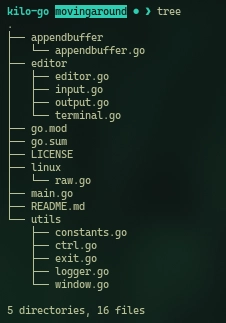9 Best Resources to Learn Coding from Scratch: A Developer’s Journey
When I first decided to learn coding, I felt overwhelmed. Where do you even start? I was like many beginners—eager but confused by so many options. Over time, I sifted through tons of resources. Some were brilliant, others… less so. Today, I want to share 9 best resources that truly made a difference in my coding journey and can in yours too. Whether you want to build websites, apps, or just understand programming fundamentals, this list is your friendly guide.
1. FreeCodeCamp — Dive Into Practical Hands-On Projects
I began learning HTML and JavaScript on FreeCodeCamp. What stood out? The mix of short lessons followed by projects that you actually build and deploy. This hands-on approach solidified my learning way better than just reading theory.
- Covers web dev basics: HTML, CSS, JS, APIs, React
- Bite-sized challenges to practice coding daily
- Real projects for portfolio building (a must for juniors)
- Completely free and community-driven
Pro tip: Treat each challenge like a mini-interview question. That mindset builds problem-solving skills.
2. Codecademy — Interactive Learning with Immediate Feedback
When I needed more structure, Codecademy was a lifesaver. Their interactive code editor guides you step-by-step.
- Supports multiple languages: Python, Java, SQL, and more
- Quizzes and projects embedded inside lessons (very engaging!)
- Paid Pro version adds quizzes, real-world projects, and career paths
The UX is beginner-friendly. You type code, submit, and get instant feedback without fuss.
3. “Automate the Boring Stuff with Python” — The Python Starter Bible
Python is my go-to language now, and this book by Al Sweigart changed my game. It’s practical, clear, and focuses on automating real tasks that you actually want to do, not just theoretical exercises.
- Downloadable book and video materials at automatetheboringstuff.com
- Teaches basics through automation scripts: file handling, web scraping, Excel reports
- Perfect for absolute beginners who want immediate payoff
Lesson: Learning code is easier when the outcome feels useful. Pick projects that solve your real issues.
4. CS50 by Harvard University — Deep Dive to Build Strong Foundation
I took Harvard’s CS50 course after a few months in. Don’t be intimidated by the “CS” label — it is beginner-friendly but thorough. It helped me understand computer science fundamentals behind the code.
- Concepts like algorithms, data structures, memory management
- Hands-on assignments like building a web app from scratch
- Free on edX, but you get a verifiable certificate if you pay
This course shapes your “engineering mindset” — crucial for scalable, maintainable codebases.
5. YouTube Channels — Tutorials & Real-World War Stories
Video tutorials are great for when you need to see actual code in action. A few channels helped me immensely:
- Traversy Media: Clear explanations on full-stack topics and project walkthroughs
- The Net Ninja: Bite-sized playlists for frontend frameworks, Node.js, Firebase
- CS Dojo: Data structures, algorithms, and coding interview prep
Pro tip: Follow along coding with the video. Pause, rewind—learn actively.
6. LeetCode and HackerRank — Sharpen Coding Skills Through Practice
Once I knew basic syntax, I hit roadblocks tackling algorithmic problems in interviews. LeetCode and HackerRank became my weapons.
- Focus on problem-solving patterns and data manipulation
- Challenges categorized by difficulty, real interview problems
- Support multiple languages
I recommend starting with “Easy” problems and gradually working up. Try to solve without hints first; it builds tenacity.
7. Educative.io — Text-Based Coding Courses & System Design Prep
Educative was a revelation for me during my system design interviews. Unlike video-based platforms, it’s focused on in-browser, interactive text lessons like a book you code in.
- Courses on Python, Java, frontend frameworks, and system design
- Great for learning concepts with embedded coding exercises
- Fantastic system design course essentials from ByteByteGo and DesignGurus.io
Explore Educative’s Coding Patterns course and their Learn Python course for deep insights that link coding to scalable architecture design.
8. MDN Web Docs — The Indie Developer’s Reference Bible
Once you start building your own projects, you’ll hit the need for precise documentation. MDN Web Docs is the gold standard.
- Official docs on HTML, CSS, JS, and APIs
- Examples, browser compatibility notes, and detailed explanations
- Community-supported and frequently updated
I bookmark it daily. It saved me from countless hours of googling ambiguous errors.
9. Joining Developer Communities — Peer Mentoring & Code Reviews
Coding doesn’t happen in isolation. Discord servers, Reddit communities, and Slack channels helped me grow faster. A few good ones:
- r/learnprogramming
- Stack Overflow (for targeted Q&A, but engage respectfully)
- GitHub open source projects – contribute even to documentation first
Ask questions, share your code, and review others’ work. This sharpens your skills and builds accountability.
Wrapping Up: Your Coding Journey Starts Now
If you take anything away, remember this: no single resource is perfect. Mixing interactive tutorials, real projects, algorithm practice, and community support creates a powerful synergy.
When I first struggled with debugging and syntax errors, it helped to break it down:
- Learn basics with FreeCodeCamp, Codecademy, or Automate the Boring Stuff
- Build real projects early (even simple ones)
- Deepen understanding with CS50 and Educative’s system design content
- Practice problem-solving daily on LeetCode/HackerRank
- Keep MDN handy as your technical dictionary
- Surround yourself with helpful peers and mentors
Your first lines of code matter. The 1000th line matters more. But trust me — you’re already closer than you think.
Bonus: My Personal Starter Plan (Feel Free to Copy!)
- Complete FreeCodeCamp’s Responsive Web Design section (HTML + CSS)
- Work through “Automate the Boring Stuff” chapters on Python basics
- Watch The Net Ninja’s JavaScript playlist to get comfortable with logic
- Start practicing 1 easy LeetCode problem each day for 30 days
- Enroll in CS50 for foundational concepts (time-permitting)
- Join a coding Discord or Slack for peer support
Feel free to share your favorite beginner resources in the comments! Let’s grow together — one line of code at a time.
(Inspired by my own early coding struggles & growth)
Further Reading & Resources
- CS50’s Introduction to Computer Science
- Grokking the System Design Interview
- ByteByteGo YouTube Channel
- DesignGurus.io System Design Course
Happy coding! 🚀


